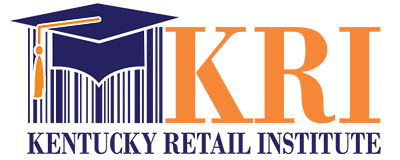The Indispensable Role of Retail Education
In the rapidly evolving retail landscape, marked by a convergence of digital and physical shopping experiences, retail education emerges as a pivotal tool that can help employees and employers alike navigate the myriad challenges presented by this dynamic sector. Retail education encompasses a wide array of learning experiences — from formalized training programs to workshops, webinars, and ongoing professional development initiatives.
Developing a Customer-Centric Approach
Modern retail is intricately linked with providing memorable experiences to consumers. Through retail education, employees can be taught the nuances of customer service, including understanding and anticipating customer needs, effectively communicating with different types of customers, and mastering the art of selling. Employers, on the other hand, can learn how to develop strategies centered around customer satisfaction, thereby fostering a customer-centric organizational culture.
Technological Literacy and Digital Transformation
As the retail sector increasingly adopts technological solutions, from AI-driven analytics to immersive VR shopping experiences, education becomes essential in bridging the digital skill gap. Employees trained in utilizing the latest technologies can significantly enhance operational efficiencies and customer experiences. Meanwhile, employers benefit by fostering a workforce that is adept at leveraging technology to drive business goals.
Supply Chain Management
The COVID-19 pandemic laid bare the vulnerabilities in the global supply chain. Retail education can help cultivate expertise in supply chain management, enabling employees to manage inventory better, predict demands accurately, and streamline logistics. For employers, a deeper understanding of supply chain dynamics can pave the way for more resilient and sustainable business models.
Compliance and Regulatory Adherence
Retail operations often entail navigating a complex web of regulations and compliances. Retail education equips employees with the knowledge required to adhere to these regulations, thus mitigating risks associated with non-compliance. Employers can learn to develop systems and policies that foster regulatory compliance, protecting the business from potential legal repercussions.
Leadership and Team Management
Retail education can serve as a crucible for developing the next generation of industry leaders. Through education, employees can acquire leadership skills necessary for career progression. Employers, too, can enhance their leadership acumen, learning to manage teams effectively and foster a positive, inclusive, and productive work environment.
Adapting to Changing Consumer Behaviors
The retail industry is characterized by changing consumer behaviors influenced by socioeconomic factors, technological advancements, and market trends. Retail education helps in staying abreast of these changes, teaching employees how to adapt and meet the evolving preferences of consumers. Employers can learn to strategize and pivot their business approaches in response to changing consumer dynamics.
Retail education emerges as an indispensable tool in the contemporary retail landscape, acting as a catalyst for personal development and organizational growth. By fostering a culture of continuous learning and adaptation, retail stakeholders — both employees and employers — can not only navigate the current challenges but also strategically position themselves to seize future opportunities in the ever-evolving retail sector.




